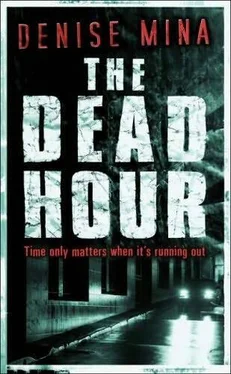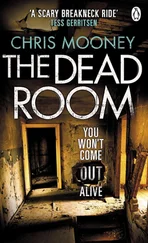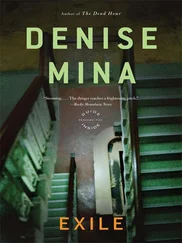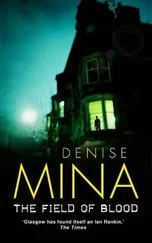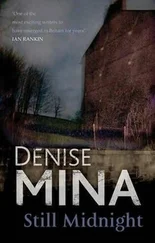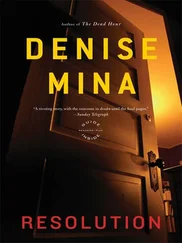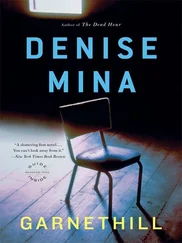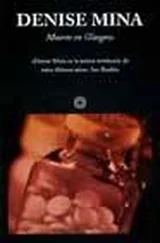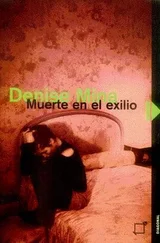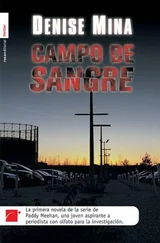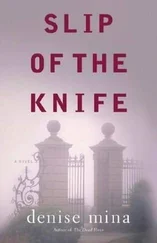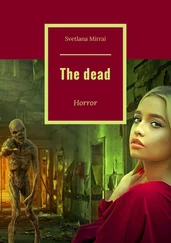“Can I phone you every so often to find out where it is?”
“Miss Meehan, I shall eagerly anticipate your call.”
Paddy sat in the back of the police car and tried to imagine how angry Farquarson would be when she told him about the fifty quid. She’d tell him when he was tired, when she got in tonight it would be the end of his shift. She’d seen his blistering morning attacks, when he was full of sugary coffee and vim and hadn’t yet blunted his temper at the morning editorial meeting. She never wanted to witness one again, much less be the focus of one.
“Here?” Sullivan was cruising up the Cambuslang Road, watching out of the corner of his eye as the house values progressively declined, finally tumbling into a black hole.
“No, it’s on a wee bit yet. Go right here,” said Paddy. They took the lights and headed up the hill. “And first left here.”
Paddy used to feel proud when people from work dropped her home but not anymore.
The Eastfield Star was a small estate on the edge of the countryside. The central roundabout was broad and the houses on the radiating streets were cottage-style, some four in a block, some detached houses for bigger families like her own. The estate had been built for a colony of miners, but the Cambuslang seams were thin and the mines had shut down long ago. Residents were council tenants and workers in heavy industry, the very sector that had been decimated in the recent recession.
An atmosphere of despair hung over the small housing scheme. Stick fences hung drunkenly on rusted wires and the grass and bushes on the roundabout were full of litter. Kids from the scheme farther up the road had scarred the blindsides of houses and garages with messy graffiti supporting splinter factions of the Irish troubles. The porridgey protective coating the council gave the houses was due to be renewed and had weathered badly, flaking off in big patches and exposing the weak brickwork underneath.
Mr. Anderston, the gardener on the roundabout, had died of a heart attack in his kitchen. He was replaced by a family of drinkers who fought loudly with each other in the street and attacked anyone who asked them to keep it down. For the first time in their lives Paddy’s parents were afraid of their neighbors.
The only person on the street this morning was old Ida Breslin. She was standing in the long, wild grass in Mrs. Mahon’s front garden as they approached, wearing a child’s green parka with the hood up, looking at something on the ground. They couldn’t see her face past the furry rim but Paddy prayed that she had her teeth in. When Ida heard the noise of the approaching car she turned, still as a startled gazelle, her tongue running along her collapsed lips.
“Here.” Paddy let Sullivan glide past Quarry Road. “You can just stop here.”
He looked out at Ida and Mrs. Mahon’s pink nylon curtains. “Is this your house?”
“Um, no, not really.” She didn’t want them to go past her own house; stray vegetation and long grass had overrun the front garden and their gate was held shut with a rusting bit of wire hanger.
“Well, which one is yours, then?”
She realized that Sullivan wasn’t driving her home to be polite; he was there to see where she lived, so that they could keep tabs on her. He turned back to look at her. “You live here?”
“Aye.” She glanced out of the window to the hillside overlooking the estate. A stolen car had been abandoned on the hill and set on fire. Lazy smoke crept out of smashed windows while the bonnet smoldered.
“For goodness’ sake,” Paddy tutted, as if it were a misplaced table mat, “who put that there?”
The clock said four and it was dark outside. Paddy sat up with a start, thinking for a moment that it was four a.m. and she’d been asleep at work. She swung her legs over the side of the bed and stood up before her legs were awake, staggering off to the side, and heard a giggle from her sister’s bed. Mary Ann was sitting in the dark, holding a set of plastic pearl rosary beads. She watched Paddy stagger back to the bed and kneel on it before carrying on with her prayers.
“It’s a bit dark, isn’t it?”
Mary Ann smiled as her fingers automatically clicked onto the next bead.
Unreasonably angered at the sight, Paddy climbed across the beds and took hold of her sister’s feet, lifting them up and down and whistling “Strangers in the Night” because their granny told them that when nice girls whistled Our Lady cried. Her sister smiled a little, looked down at her rosary beads, and carried on.
Paddy bounced to a stop on the bed and watched her sister repeating the ancient prayers by rote. “Don’t shut your eyes, Mary Ann, look up.”
But Mary Ann ignored her.
Since they were children Trisha had prayed every night that one of them would find a vocation and join a religious order. She’d set her heart on her eldest son, Marty, being a priest, but Marty wasn’t very nice or religiously inclined and Gerald wasn’t smart enough.
Mary Ann’s side of the bedroom didn’t have posters of heartthrobs anymore and the chest of drawers at the end of her bed no longer had makeup on it, but holy books and novenas. It started when Pope John Paul II gave a mass at Bellahouston Park.
Even Paddy was impressed by the spectacle and the pomp. They were an immigrant minority and the generation of young people at the open-air mass had grown up ashamed of their primitive Catholicism. But John Paul II dignified religious defiance. He had remained Catholic under a brutal Communist regime, openly proclaiming himself and ministering to anyone courageous enough to follow him. Young Catholic Scotland suddenly rewrote the meaning of their journey and felt proud that they had kept the faith despite being denied work and houses and being marched against by the Orange Order.
When the pope took the stage they stood shoulder to shoulder with two hundred thousand fellow faithful, the hot June sun warming their backs, applauding until their hands were scorched, clapping themselves as much as their priest.
Paddy went on the parish bus to please her mum but drifted off as soon as she could, standing at the back with the loose crowd of skeptics. She felt something in the summer air, a power maybe, the energy of conviction. The thrill caught the back of even her unbelieving throat. She could share in the pride of her people even if she didn’t share their faith. She never went to mass anymore but did her parents the courtesy of pretending she might by always being out on Saturday evenings during the hour of the teatime mass when the Sunday obligation could be fulfilled.
Mary Ann left the park deeply changed. She became a devout daily communicant and spent her days praying at home or passively engaged in the business of the church. She had tried the Charismatic Renewal, a highly emotive movement within the church that invited the Holy Spirit to manifest itself by making them behave in faintly ridiculous ways, like falling over, talking rubbish, or crying in public, but she was too giggly and shy for it.
A priest with a twitch at St. Columbkille’s was trying to get Mary Ann a place at Taizi, an ecumenical camp for young Christians, so she could try out the religious life and see how it suited her.
Paddy sat in the dim light at the foot of the bed, watching Mary Ann’s lips tremble in the dark as her finger found its mark on the row of beads. The light seemed to leave the room as she looked at her. She loved Mary Ann more than anyone alive and she didn’t want her life to consist of prayers in gray halls or being nice to people in trouble, an awful, humble half-life. She wanted Mary Ann to have great dangerous adventures in wild sunshine, trips to America, a passionate love affair that ended in tears on a bridge in Paris.
Читать дальше
